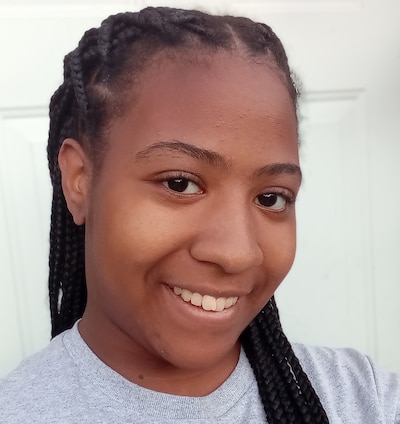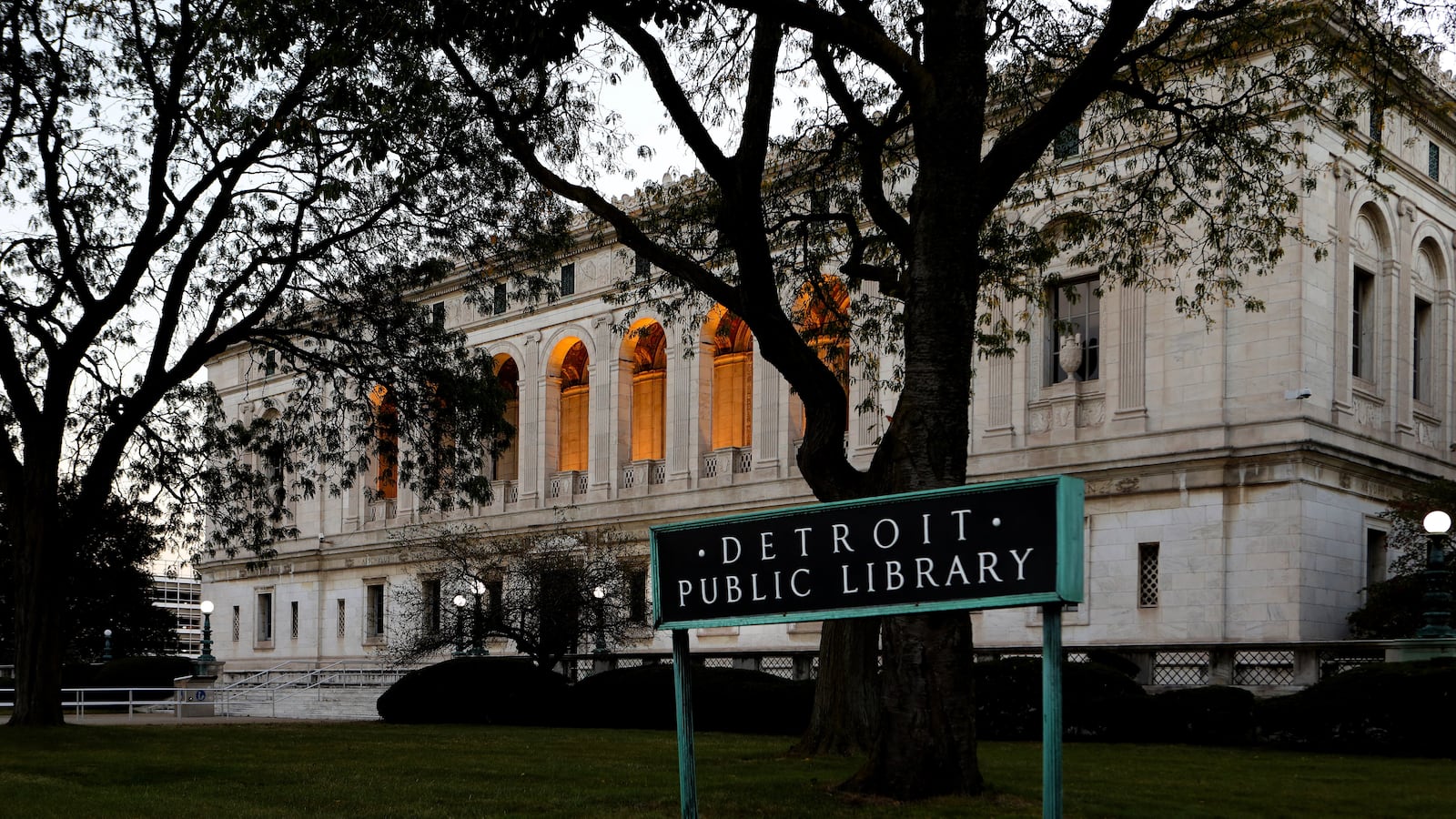It’s a typical spring Saturday. The sun is shining, and the wind carries my laughter as my friends and I gather outside the Main Branch of the Detroit Public Library.
We arrive with backpacks slung over our shoulders, waving to the library security guards, who have become accustomed to our weekly routine. The impressive rooms of the century-old Renaissance Revival structure are typically quiet on Saturday mornings, so we jokingly shush each other’s giggles as we set up our laptops and browse the stacks for books.

Our phones are, of course, not far away. Mine is in my back pocket, and it vibrates with texts from my mother, reminders about upcoming deadlines, and the occasional direct message on Instagram. I resist the urge to click on the notifications. I know that clicking on one video will turn into two, and before I know it, I’ll be mindlessly scrolling through funny cats and tutorials on braiding hair.
My friends and I are digital natives, as most of us grew up with technology and had our own phones or tablets before the end of fifth grade. I’ll admit that the concerns my parents expressed on many occasions about teenagers being addicted to their phones were not entirely unfounded.
Studies have shown the potential dangers of teens spending too much time online, especially on social media. According to a 2023 U.S. Surgeon General’s report, “some researchers believe that social media exposure can overstimulate the reward center in the brain and, when the stimulation becomes excessive, can trigger pathways comparable to addiction.”
It’s easy to get distracted by constant notifications and endless internet content curated just for me. However, if I start scrolling, a gentle nudge from my friend beside me in the library convinces me to focus on completing my homework assignments. The antique wooden tables and the quiet ambience calm me amid the pressure that comes with completing schoolwork.
After typing up an essay for my history class and drafting a book report for my English class, it’s time to take a break for lunch. We put on our jackets and talk as we walk over to the Detroit Institute of Arts. We debate whether we should go to the main cafe or hang out in Kresge Court. It’s a pointless argument, since we’ll end up walking around the exhibits for so long that we’ll get hungry again and have the opportunity to get food from both places.
It’s refreshing to experience things in the real world, not just in the digital one. But for a long time, I used technology to escape the real world. Back in middle school, I would sit alone in the stairwell when there was a rumor going around the lunchroom about me. Sometimes, I would blast music through my headphones so I didn’t look so pitiful to the teachers walking past me.
At home, I’d binge-watch Netflix shows until my eyes hurt more from staring into blue light than crying over an unfortunate report card. I hid in my room, and I felt like I couldn’t explain to my mom the stress I was experiencing. She would see my sullen face and ask questions like, “What’s wrong with you?” and “What are you making that face for?” I would shrug my shoulders and go back upstairs to be alone with my phone.
My friends and I decided to spend quality time together without the distraction of our devices.
My mental health suffered. My sleeping schedule was unpredictable, and my appetite fluctuated. I would wake up in the middle of the night crying, and it felt like the only way to calm my racing heart was to scroll through random memes online until sleep overcame me. The insomnia only furthered my anxiety during the day. I was trapped in a spiral of emotional breakdowns followed by attempts to use social platforms to ignore the real issues.
But one day, I was sitting on the porch at my friend’s house, and I felt like I could finally breathe. We weren’t doing anything serious or exhilarating — just talking out loud to one another in the fresh air. I could feel the warm sunshine and smell the grass that was freshly wet from the sprinklers.
For hours, we flipped through conversation topics, such as the cartoons we grew up watching and our favorite poems. It didn’t even occur to me to pick up my silenced phone, and I felt no need to check any of my social media accounts. An older neighbor even remarked, “It’s so refreshing to see kids being outside instead of always on their phones.”
I used to think that adults were being overly dramatic when they talked about how bad smartphones were for us, but the more afternoons I decided to leave my phone on Do Not Disturb, the better I felt. Soon, I could fall asleep without watching YouTube videos, and I spent fewer nights crying.
It wasn’t just me, though. My friends also mentioned how getting away from screens was mood-boosting. “I forgot monarch butterflies were orange,” one of my friends admitted. It was a silly thought, but it showed just how detached we had been from our physical surroundings.
My friends and I decided to spend quality time together without the distraction of our devices. We agreed to meet up at the library to check out some books. We brought out stacks of novels from the shelves and stayed until closing time.
But the day’s break from Instagram reels and TikTok trends just didn’t feel long enough. We decided to return the following Saturday and the Saturday after that. Hence, our library routine was born. What started off as a mental health day turned into a weekly custom, and now, I feel much more connected to the world, to my friends, and to myself.
But it’s increasingly clear that social media has played a role in exacerbating mental health issues ever since its earliest days. A 2022 study examined surveys of college students’ mental health between 2004 and 2006, when Facebook first came online on college campuses, and found that the platform negatively impacted users. The rollout of Facebook was linked to more than 300,000 young people suffering from depression, the study showed.
The risks posed are even more intense today, with the social media ecosystem more developed and with powerful apps at our disposal.
Amid these distractions, it sometimes seems that we’re losing our ability to connect. But activities as simple as meeting up with friends at the library and walking museum corridors together reveal how stepping away from our digital lives can improve our well-being.
I want to challenge the narrative of hopelessness surrounding teens today, and I want to show my peers and the younger generation that there’s a whole world beyond the screen. There is so much to explore.
Charisma Holly, a 2024-25 Student Voices fellow, is a young writer born and raised in Detroit. She creates stories, plays, poetry, and other forms of writing. Charisma writes to be an inspiration to her community and to share her voice with the world around her.


